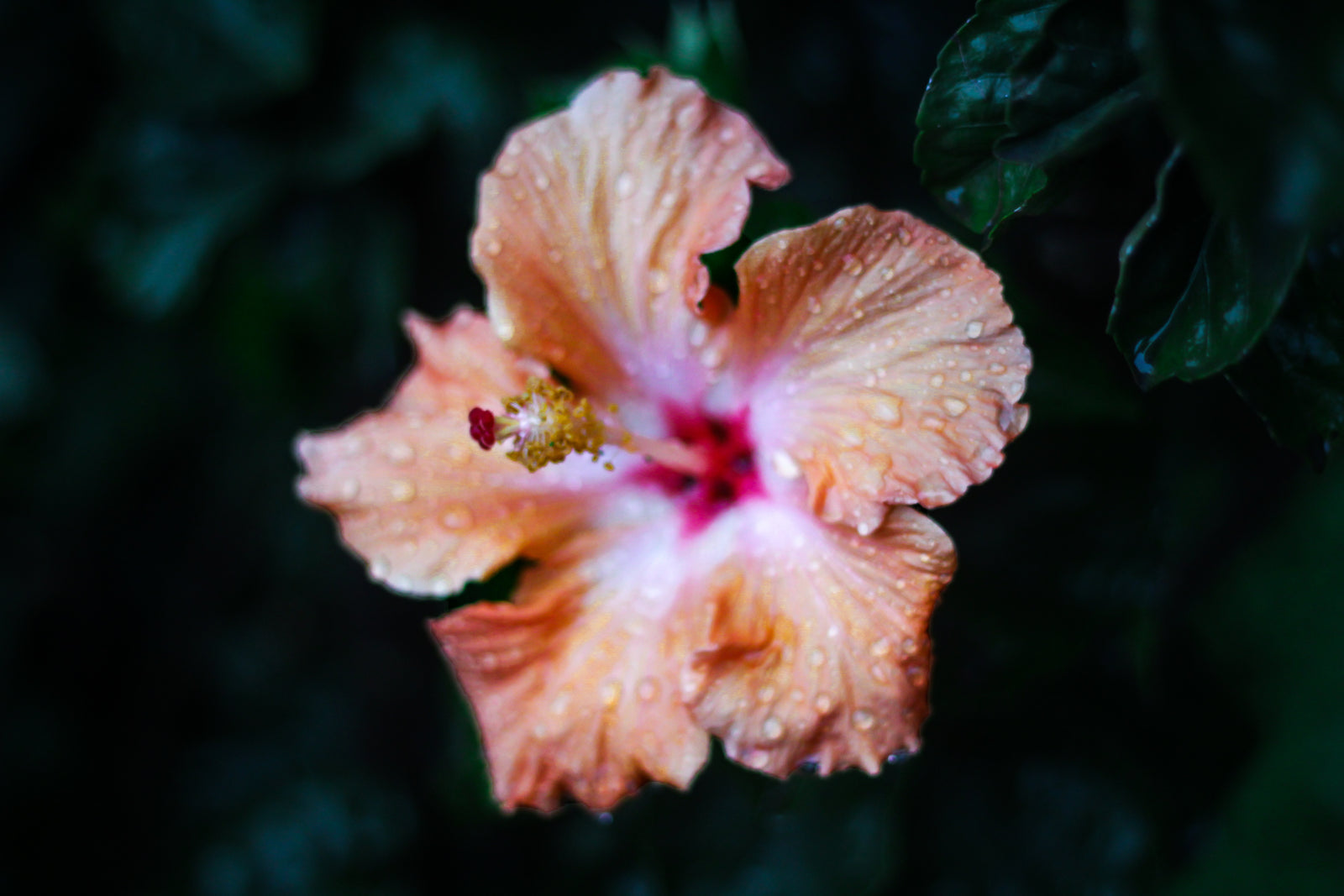TL;DR Hibiscus plants perform many functions and provide medicinal benefits, which include preventing and treating UTI.
---
These plants aren’t just pretty flowers. Like the Wonder Woman of the flora-verse, Hibiscus is not just a pretty sight. It does all sorts of medicinal wonders too – like curing UTI!
Here’s all there is to know about hibiscus plants.
#1 Colorful plant is colorful.
Hibiscus comes in red, peach, yellow and white. Go crazy with these massive plants (they can be as wide as 6 inches!) and they’re sure to add some colors to your succulent collection. If you’re after its medicinal purpose, then go for the red. The rosy Hibiscus sabdariffa is the most popular variety of this plant and is usually turned into dietary supplements.
#2 Hibiscus tea is sour.
Hibiscus tea has a tart taste, all thanks to a combination of its dried flowers, leaves, and dark red calyces (that cup-shaped center of flowers). Calyces are also often the main ingredients in herbal drinks containing hibiscus.
#3 Hibiscus is used in many cultures for its curative nature.
This plant goes a long way back and transcends many cultures when it comes to its medicinal uses and remedies. [1]
- In Egypt, hibiscus tea is used to lower body temperature, address cardiovascular diseases, and increase urine production.
- In Africa, the tea is used to treat constipation, cancer, liver disease, and cold symptoms. The pulp is also applied to the skin to heal wounds.
- In Iran, drinking sour tea is still a common treatment for high blood pressure.
#4 Hibiscus has, in fact, A LOT of health benefits.
Fast forward to modern times, hibiscus is now used for treating conditions and it makes your immune system stronger: [2]
- It contains antioxidants. Hibiscus tea is packed with antioxidants that help your body fight free radicals, which damage your cells. If you'd like to know more about what antioxidants are and how they kill free radicals, then watch this video:
- It lowers the blood pressure. Certain studies report that hibiscus tea helps lower both systolic and diastolic blood pressure. A heads up though – don’t drink it with hydrochlorothiazide, a diuretic that cures high blood pressure, to steer clear of any interaction. [3, 4]
- It lowers cholesterol levels. While studies show conflicting results on this, hibiscus has been commonly known to lower blood cholesterol and triglycerides. This is especially true among diabetics and those suffering from metabolic syndrome. [5, 6, 7]
- It leads to a healthier liver. Hibiscus extracts (read: not tea) help your liver get in tiptop shape and work efficiently. [8] They increase drug-detoxifying enzymes while reducing liver damage and fatty liver.
#5 But mad props go to it for acting as a natural cure for UTI.
Hibiscus tea and its extracts help fight bacterial infections.
Studies showed that hibiscus extracts prevent E. coli from causing you cramps, gas and diarrhea. [9] It also serves as an effective anti-bacterial cure. [10]
Apparently, both the flower and calyces are rich in polyphenols that fight bacteria, such as flavonoids, sambubiosides, and proanthocyanidins. These natural agents keep E. coli from sticking to the walls of the urinary tract and bladder wall linings. They’ve also been proven to prevent UTI-related bacteria like the notorious E. coli from multiplying in the urinary tract.
Here’s the best part: Studies show that cranberry extract in pill form is more economical than drinking large quantities of 100% cranberry juice. So if you’re not a big fan of sour juice or teas, then this is a piece of good news!
#6 It’s easy to find hibiscus.
Hibiscus tea and extracts can be found in health specialty stores, usually in the form of dietary supplements.
If you’re curious what the recommended daily intake is, the answer is none. It all depends on the product and why you’re taking it.
#7 There are some precautions though!
Hibiscus is generally considered safe. However, more precaution is needed among pregnant and nursing women, children, and people with liver or kidney disease. There isn’t enough research on any possible effects to these people. So the jury's pretty much out on this one!
Also, because of its tart taste, it might have undesirable effects on sensitive tissues. So if it makes you ill, best to keep it away.
If in doubt, consult your doctor before consuming any type of hibiscus.
The trifecta for you
Hibiscus - whether as a tea, petal or extract - can serve many medicinal purposes. One of its amazing benefits is its ability to prevent and cure Urinary Tract Infection.
Hibiscus flower, when combined with D-Mannose and Organic Cranberry, can fight painful UTIs by flushing away the bad bacteria that causes them.
So in the unfortunate case of you getting another bout of UTI, try this powerful trio in one product for a remedy that doesn't require a doctor's prescription.
Sources
[1] https://www.healthline.com/health/all-you-need-to-know-hibiscus
[2] https://www.healthline.com/nutrition/hibiscus-tea-benefits#section8
[3] https://www.ncbi.nlm.nih.gov/pubmed/20018807
[4] https://www.ncbi.nlm.nih.gov/pubmed/25875025
[5] https://www.ncbi.nlm.nih.gov/pubmed/19678781
[6] https://www.ncbi.nlm.nih.gov/pubmed/19962289/
[7] https://www.ncbi.nlm.nih.gov/pubmed/24120746
[8] https://www.ncbi.nlm.nih.gov/pubmed/24549255








